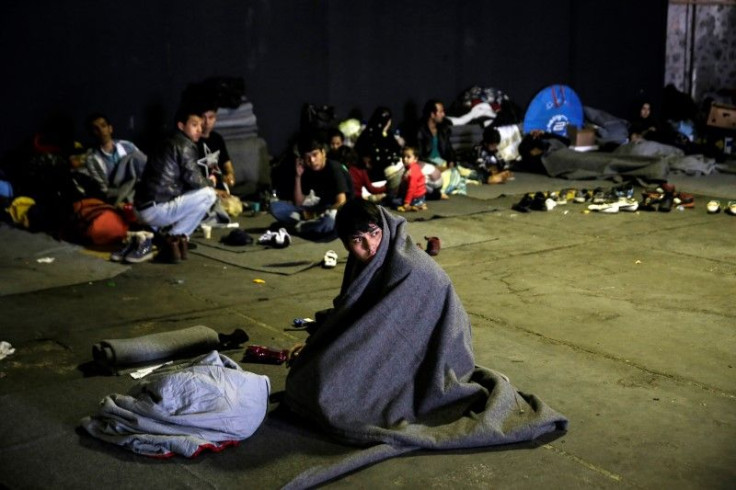Humanitarian Aid Running Out At Greek-Macedonia Border [Video]

Migrants stuck at the makeshift border camp on the Greece-Macedonia border on Wednesday (March 2) huddled around fires to keep warm as only a small number were permitted to pass the border. Meanwhile aid agencies said there was not enough humanitarian aid to go around.
Local International Organization for Migration (IOM) officials at the Idomeni border crossing told Reuters that only a handful of people were allowed to pass the border on Wednesday.
A woman and children crammed into the queue of people waiting to pass began to sob as Greek border guards locked the gate after the last migrant was allowed to pass through.
On Tuesday (March 1) the United Nations said the build-up of thousands of migrants and refugees on Greece's northern borders was fast turning into a humanitarian disaster. A U.N. refugee spokesman said that Greece had a shortage of food, water and supplies for the migrants.
Volunteer aid organisations as well as migrants at the border have echoed similar comments of shortages.
"There is not enough tents, because this is very small, two persons, three persons inside, you see old people outside they sleep and wet. It's too cold," Syrian migrant Tarek from Aleppo saidon Wednesday.
The European Commission said it would allocate 300 million euros ($325 million) this year to helping any EU state, not only Greece, deal with such crises, and 700 million in all over the three years to the end of 2018.
The Greek government said it had asked the Commission for 480 million euros worth of assistance, including ambulances, blankets and personnel to help with 100,000 asylum seekers.
Migrants have become stranded in Greece since Austria and other countries along the Balkans migration corridor imposed restrictions on their borders, limiting the numbers able to cross.
German Chancellor Angela Merkel said clashes at Greece's border with Macedonia on Monday (February 29) - when migrants battered down a gate and were tear-gassed - simply underlined the urgency with which the EU needed to act on the crisis.
But Austria - which last month limited the number of migrants it lets through to 3,200 a day - stuck to its position that it did not want to become an overcrowded waiting room for thousands wanting to make it further north.
Croatia, which is also on what is now the well-trodden migrants route northwards from Greece, said it might deploy its armed forces to help police control flows.
Despite commitments to relocate 66,400 refugees from Greece, EU member states have so far pledged just 1,539 spaces and only 325 people actually have been relocated, the UNHCR said.
© Copyright Thomson Reuters 2024. All rights reserved.





















